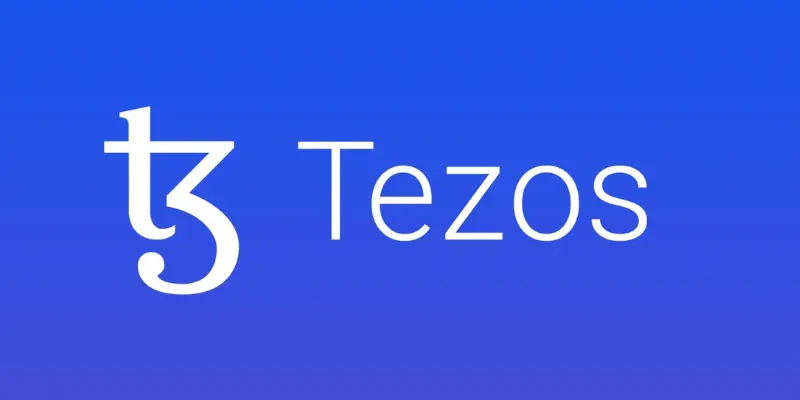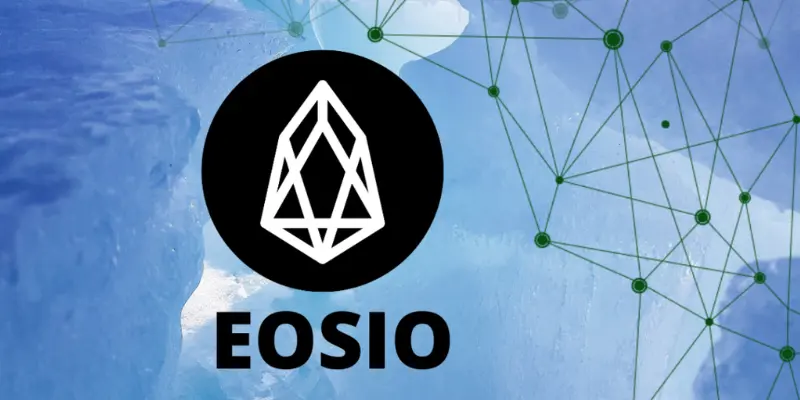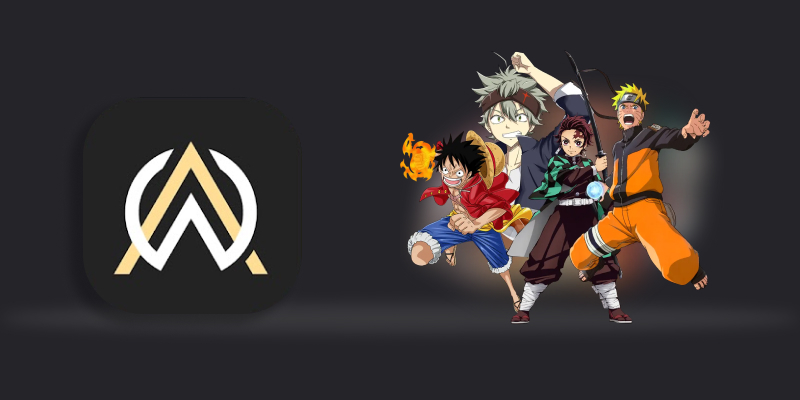When an anonymous person by the name of Satoshi Nakamoto published the Bitcoin whitepaper in the initial days of 2008, blockchain came into being in the industry with a lot of interesting features. Bitcoin first popularised the idea of decentralised digital money made possible by blockchain technology and to have monetized new businesses by investing in it. Self-executing contracts known as "smart contracts" contain conditions built right into the code.. This eliminates the need for middlemen and allows decentralised applications (DApps) to automate transactions and procedures with few and easy steps through blockchain development platform.
The revolutionary promise of blockchain lies in its capacity to eliminate unnecessary work for middlemen, boost high-quality transaction security, and increase transparency, which is beneficial for business operations and users. Peer-to-peer exchanges are made possible and easy, which lowers expenses and does away with the requirement for faith in centralised higher authorities. Furthermore, because blockchain is decentralised, it is impervious to manipulation and censorship, protecting the accuracy of information and transactions within business operations. Blockchain technology has uses outside of finance in a number of sectors, such as real estate, healthcare, supply chain management, and more. It enhances patient data management and interoperability in healthcare, permits fractional taking over ownership and transparent transactions in real estate, and helps supply chains be more accountable, traceable, and business proven which lead to developing many blockchain platforms.
However, there are obstacles to blockchain adoption, including problems with interoperability, scalability, energy consumption, and regulatory ambiguity. Notwithstanding these obstacles, continuous R&D endeavours propel advancements in blockchain technology, rendering it a promising instrument for transforming multiple sectors and transforming the trajectory of transactions and data administration.
Top 10 Blockchain Platforms
With help of digital growth and transformation here is list of top 10 blockchain platforms:
-
Ethereum
.webp)
Since Ethereum is the most well-known and established blockchain technological platform that Vitalik Buterin has proposed, it was launched in 2013. The development of decentralised autonomous organisations (DAOs), non-fungible tokens (NFTs), and decentralised finance (DeFi) with top-notch features have all been made possible by this recent breakthrough and increases the efficiency of the platform. Ether (ETH), Ethereum's native coin, drives transactions and pays loyal users. With Ethereum 2.0, the consensus process shifts from proof-of-work to proof-of-stake, with the goal of improving sustainability, security, and scalability for business growth and profits, as it is an essential part of the working system. With the help of an international community of potential individual fans of Ethereum and developers, Ethereum's thriving ecosystem is pushing the limits of blockchain technology, encouraging creativity, and revolutionising digital markets all over the world and setting goals for future businesses.
-
IBM Blockchain
.webp)
IBM Blockchain is a top-tier enterprise-grade blockchain system that helps companies improve smooth and seamless transaction process and trust, expedite operations, and increase transparency. IBM Blockchain provides a safe and scalable framework for creating, implementing, and overseeing blockchain networks by utilising additional open-source technologies in the industry. It allows for smooth collaboration between businesses and the protection of high-tech data confidentiality with features like permissioned access controls, consensus procedures, and smart contracts. IBM Blockchain's new and modular design addresses a wide and new range of use cases, including supply chain traceability, digital identity verification, and cross-border payments. With the backing of IBM's knowledge in enterprise solutions and cloud computing, IBM Blockchain is advancing innovation and creating new business opportunities in the digital era for even new possible businesses.
-
R3 Corda
.webp)
R3 A distributed ledger app called Corda was created with businesses and their profits in mind. It offers a safe and effective setting for maintaining contracts and carrying out transactions. Launched by R3 in 2016, Corda presents a distinct method of utilising blockchain technology, emphasising interoperability, scalability, and privacy, which are highly guarded. In contrast to conventional blockchains, Corda uses a "permissioned" network paradigm, allowing users to conduct direct transactions while maintaining data privacy and legal compliance by legal authorization. Because of its architecture, it is easier to create "CorDapps," or smart contracts, that are customised to meet the demands of many industries, including trade finance, healthcare, and finance globally. With its strong developer and partner network and focus on enterprise-grade functionality, Corda is a top and well-known app for creating safe and effective decentralised apps in the worldwide market.
-
Stellar
.webp)
Stellar is a decentralised blockchain platform that is well-known for making asset transfers and cross-border transactions quick and affordable. Jed McCaleb and Joyce Kim founded Stellar in 2014 with the goal of bringing people, payment systems, and financial institutions together globally, especially those living in disadvantaged areas, getting into digitally transformed worlds. Stellar Consensus Protocol (SCP), its consensus technique, allows for quick settlement in a matter of seconds while guaranteeing transaction finality and network security. Lumens (XLM), the native cryptocurrency of Stellar, acts as a bridge between the assets to enable smooth currency exchange on the network without any error or mishap taking place. Stellar's emphasis on inclusivity and interoperability has drawn interest from the blockchain community as a workable alternative for asset tokenization, remittances, and financial inclusion which is taking immediate boom globally. This has spurred innovation in international payments and other areas.
-
Tezos

Tezos is a blockchain platform that makes it possible to develop smart contracts. Tezos, which was newly launched in 2018, stands out for having a self-amending record that makes protocol upgrades smooth and avoids the need for hard forks and complicated situations. Because of the new feature, the platform is more flexible and secure and has raised the efficiency of the platform and brand awareness in the industry. It has better governance, which attracts developers and businesses looking for the latest and most reliable blockchain solution for users' problems effectively and efficiently with concern measures. Through the use of a proof-of-stake consensus method, Tezos allows its potential users to stake their tokens to earn rewards, take part in the network, and improve decision-making quickly and in this way users can make money. Tezos promotes innovation with its representation in the blockchain ecosystem by making it easier to construct safe and dependable applications for a variety of industries, such as finance, gaming, and digital marketing covering the major other sectors. This is achieved through its emphasis on formal verification and on-chain high security governance.
-
EOSIO

A blockchain technology called EOSIO was created with the purpose of developing highly scalable and decentralised apps (DApps) to take the industry to the next level for business growth. EOSIO, which was first presented by Block. one in 2018, is notable for its high number of transaction throughput, low latency, and adaptable governance structure with highly technical safety and security measures which raise the expectation of the process. Through the use of a delegated proof-of-stake (DPoS) consensus and latest technological method, transactions are validated quickly and effectively by a small set of professionals. With integrated features like resource management, identity management, and intelligent contracts, as it provides developers with an environment rich in features and graphical representation. It is appropriate for a variety of applications, including social media, gaming, and decentralised finance (DeFi), due to its scalability and cheap transaction costs. EOSIO's emphasis on performance and usability has kept developers and companies, even startup businesses who want to invest in this industry, seeking to use blockchain technology for creative solutions drawn to the platform.
-
ConsenSys Quorum
.webp)
Talking about blockchain has many varieties of different versions in the industry. Looking at Quorum, it is a customised version of Ethereum and has grown with its latest features of blockchain technology. With the open-source ConsenSys Quorum blockchain platform, developers and businesses can develop and highly secure decentralised apps (DApps). It is built on Ethereum and makes the most use of the Ethereum Virtual Machine (EVM) to make smart contracts and other current blockchain tools which are more slightly taken into consideration much more compatible for businesses to use. ConsenSys Quorum uses privacy-enhancing and result-oriented technologies to guarantee data integrity and confidentiality for enterprise applications, including private transactions and zero-knowledge proofs. ConsenSys Quorum also provides permissioned network topologies and adaptable consensus processes and new methods, enabling enterprises to customise the platform to meet their unique needs and help improve user satisfaction. ConsenSys Quorum allows companies to make use of blockchain technology while adhering to regulatory compliance and data privacy rules by all business means, all while maintaining focused privacy and interoperability with high business standards.
-
Hyperledger Sawtooth
.webp)
It is another open-source blockchain platform developed by the Linux Foundation. It provides a different modular architecture that enables developers to customise and create blockchain networks at a larger scale to meet business and user-specific requirements. It has a unique consensus method known as "Proof of Elapsed Time" (PoET), which uses trusted execution environments (TEEs) to guarantee scalability and fairness. Sawtooth is appropriate for a variety of enterprise applications, including supply chain management, because of its design, which places a high priority on simplicity, architecture, and security. Hyperledger Sawtooth gives businesses and users the confidence and efficiency to design and deploy blockchain solutions because of its highly new extensive documentation and vibrant community.
-
Solana
.webp)
Two of the most well-known characteristics of the high-performance blockchain platform Solana are its scalability and reduced transaction costs to provide high quality results to users. Solana, which was created in 2020 with the assistance of a blockchain business, mixes proof-of-stake (PoS) with a special proof-of-history (PoH) consensus technique to enable high throughput and quick transaction processing. By enabling hundreds of transactions per second—which are extremely difficult to monitor but which blockchain has made simpler—Solana hopes to solve the scalability issues and make decisions that other blockchain networks encounter. Because of its scalability, Solana is appropriate for high-volume blockchain applications such as non-fungible tokens (NFTs), decentralised finance (DeFi), and others. It is powered by SOL, the native cryptocurrency of the Solana network, which is also utilised by the business operations to benefit from staking incentives and transaction minimum costs which is very effective for users.
-
Ripple
.webp)
Blockchain technology company Ripple acts as the most wanted platform in the blockchain industry and is well-known for its cryptocurrency, XRP, and digital payment gateway system. In contrast to more established cryptocurrencies like Bitcoin, Ripple is primarily concerned with making cost-effective quick international money transactions possible and people on demand prefer this payment section. It facilitates cross-border real-time transaction settlement by running on a distributed ledger network and getting business and user attention. Because Ripple's consensus algorithm, the Ripple Protocol Consensus Algorithm (RPCA), does not rely on proof-of-work mining, transactions are faster and consume less energy than they did in the past. Its native token, XRP, functions as a bridge currency for international payments involving many currencies, significantly reducing transaction costs and settlement times when compared to laborious and time-consuming traditional banking systems. Because of its protocol and expanding network of financial institutions and payment providers, Ripple is seen as a possible alternative for improving the accessibility and efficiency of international payment and remittance systems.
Features of Blockchain Apps
Here are some of the key features and benefits of popular blockchain platforms:-
-
Immutability
Immutability is the quality of anything not being changed or modified. It is considered the best aspect of the blockchain industry, and it helps ensure that the technology will continue functioning as a stable and unchangeable network. While everyone knows it is a bit complicated to be in the blockchain industry. A chain of blocks that guarantees the integrity and immutability of the data is created when each block has a distinct cryptographic hash of the one before it. Because of this capability, blockchain is perfect for applications that need verifiable data, such as voting systems and supply chain management. It also improves openness and traceability.
-
Decentralised
In the operations of blockchain, there is no single individual or team that oversees the framework. The whole system is decentralised since the collection of nodes is maintained. This feature is essential because of blockchain technology, which grants the status of disruption and proves a great alternative to centralised systems. Blockchain distributes the transaction ledger throughout a network of nodes, doing away with the need for a mediator. Because of this decentralisation, there is less chance of a single point of failure, security is improved, and participant trust is essentially gained.
-
Enhanced Security
When it comes to the security of the operational system, an additional layer of protection is provided for the system as the blockchain’s records are all individually encrypted. Blockchain provides a safer space for its potential users compared to the current form of the internet – Web 2.0. In order to avoid double-spending and unauthorised alterations, consensus techniques like Proof of Work (PoW) and Proof of Stake (PoS) make sure that only legitimate transactions are uploaded to the blockchain. Furthermore, because blockchain is decentralised, there is a lower chance of cyberattacks and data breaches than with centralised systems.
-
Transparency
Blockchain has raised and set the standards for being very transparent, which included making data open in many ways that have not previously existed in financial systems. A block explorer allows the networking participants to have access to the holdings and do the transactions of public addresses. All network users can access a transparent and auditable record of transactions thanks to blockchain technology. Timestamped and documented on a shared ledger to record, each transaction enables real-time tracking and monitoring. Transparency lowers the possibility of fraud and improves accountability in a number of industrial aspects, including healthcare, logistics, and finance.
-
Minting
With the help of authentic data in the process of creating new coins, developing new blocks and recording the information onto the blockchain via a proof of stake protocol is known as crypto minting. Best blockchain platforms like Ethereum and IBM blockchain allow you to mint the coins easily. It helps you mint transactions and receive cash from other network users.
Conclusion
Top blockchain platforms are multifaceted ecosystems that offer the digital assets and technology needed to create and implement decentralised apps (DApps). One of the most well-known blockchain platforms, Ethereum, pioneered smart contracts and opened the door for blockchain technology that can be programmed. It is a well-liked option for developing decentralised finance (DeFi), NFT, and best business solutions due to its widespread usage and developer-friendly environment in the industry. Professionals and customers looking for scalability and affordability are drawn to Binance Smart Chain (BSC) because of its low transaction costs and interoperability with the Ethereum Virtual Machine (EVM). By emphasising scalability, security, and sustainability it helps to overcome the drawbacks of current blockchain systems and facilitate sophisticated DApps and business use cases.














Share this blog